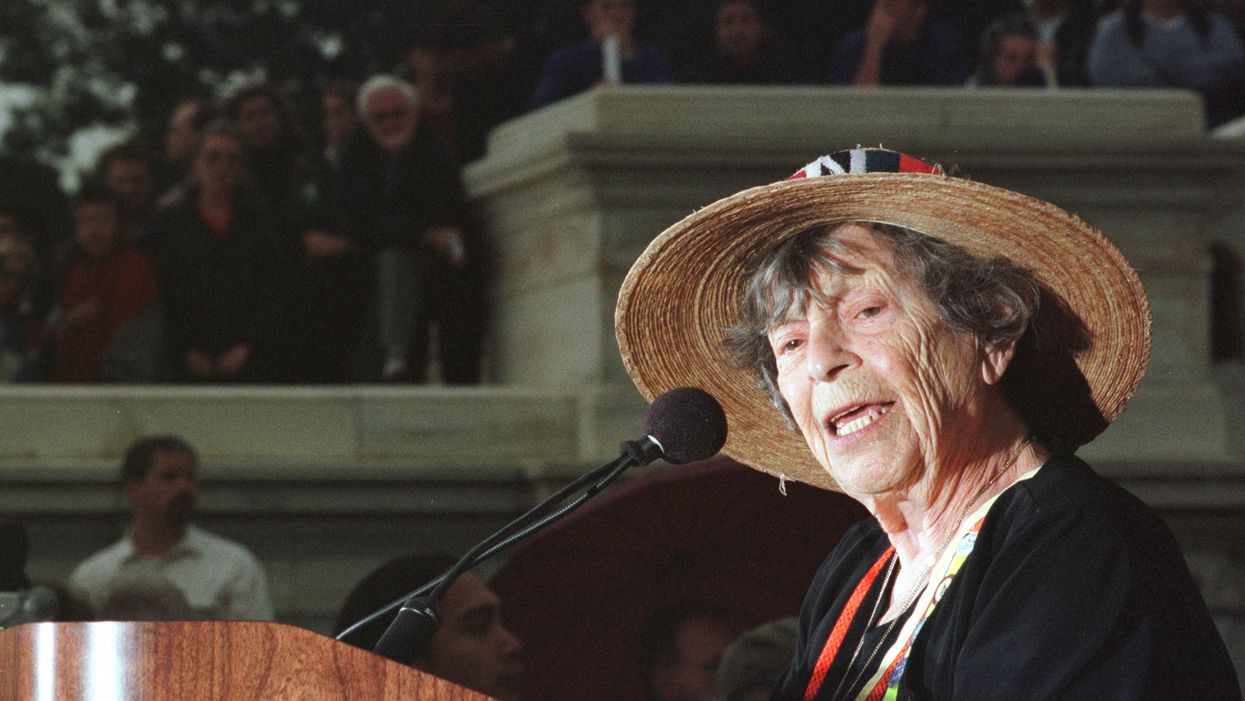A New Hampshire lawmaker has proposed legislation to establish Jan. 24 as "Granny D Day" to honor the beloved political activist.
A Granite State native, Doris "Granny D" Haddock was known across the country for her dedication to campaign finance reform. She died at age 100 in 2010. Friday would have been her 110th birthday.
In 1999, at the age of 88, Granny D embarked on a 3,200-mile walk from California to Washington, D.C., to bring attention to the need for campaign finance reform. The journey ended with a rally at the Capitol 14 months later.
Six years later, Granny D ran for the U.S. Senate as a Democrat, attempting to unseat Republican Judd Gregg. Although her bid was unsuccessful, she campaigned without accepting only small, individual contributions and garnered one-third of the vote after entering the race just before the filing deadline.
Democratic state Sen. Melanie Levesque introduced the bill on Tuesday, calling Granny D a "fierce activist who dedicated her life to defending democracy."
"Granny D recognized the importance of civic responsibility and encouraged people to practice their right to vote," the bill reads. "She was politically active throughout her life and called for honesty, transparency, and equality in politics."




















Trump & Hegseth gave Mark Kelly a huge 2028 gift